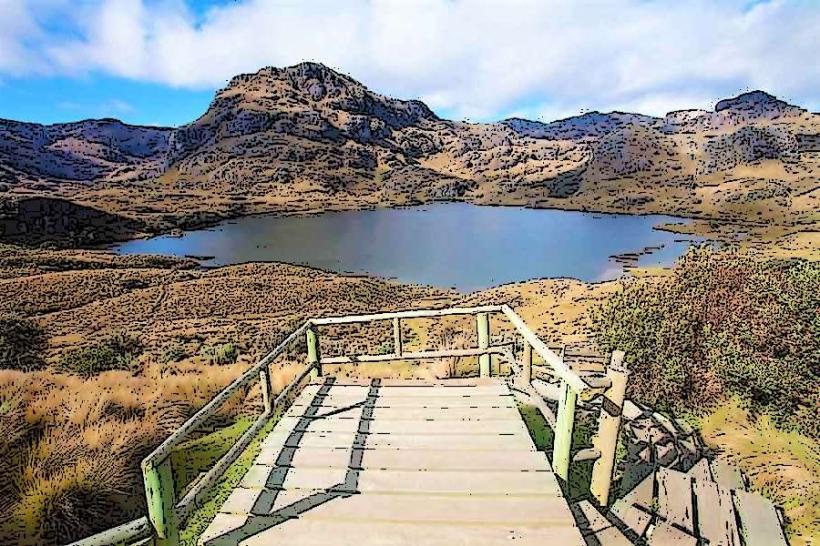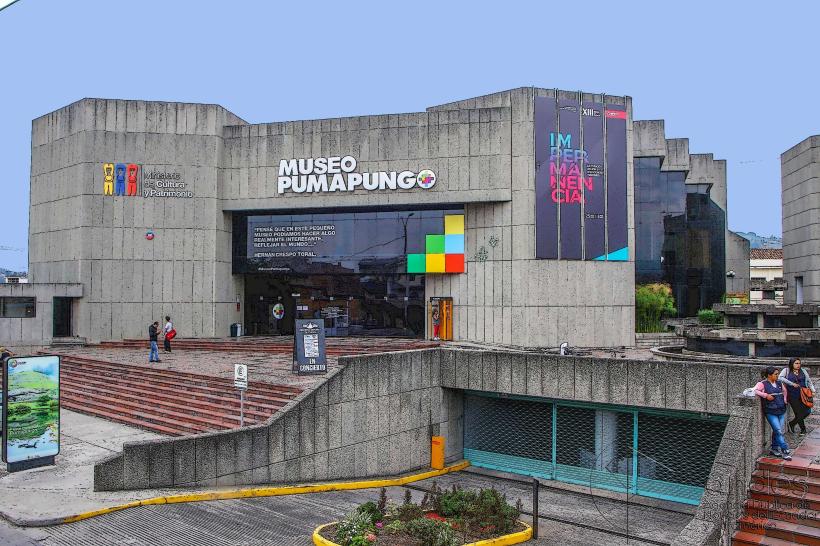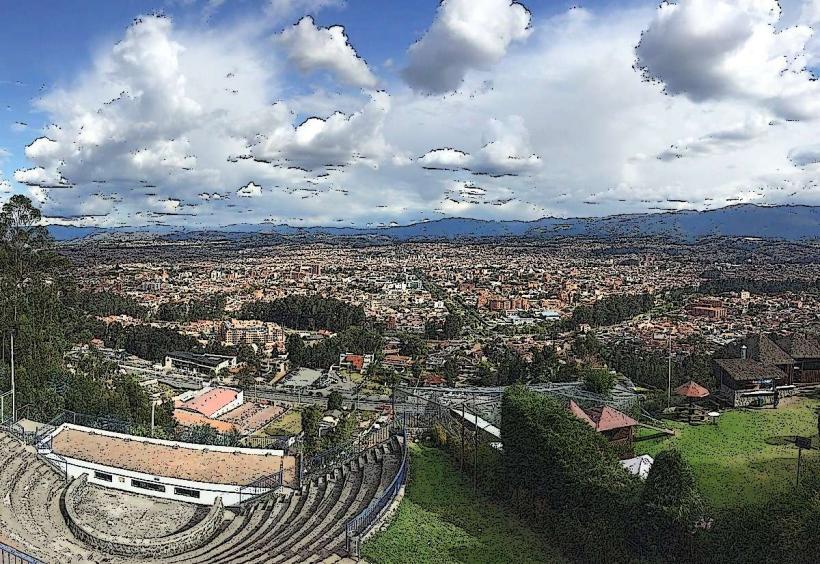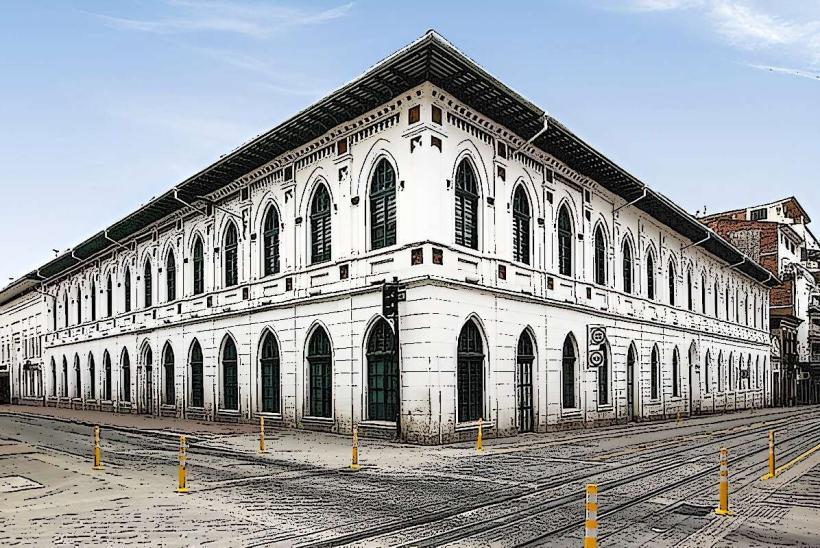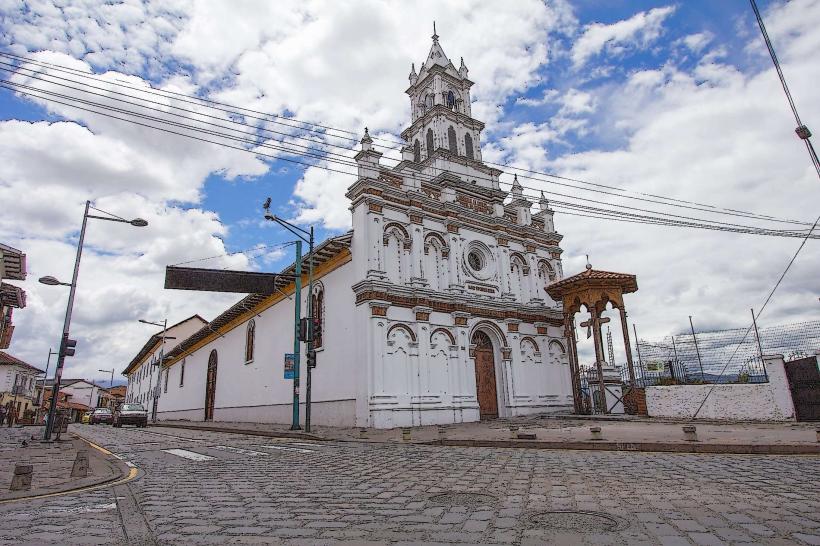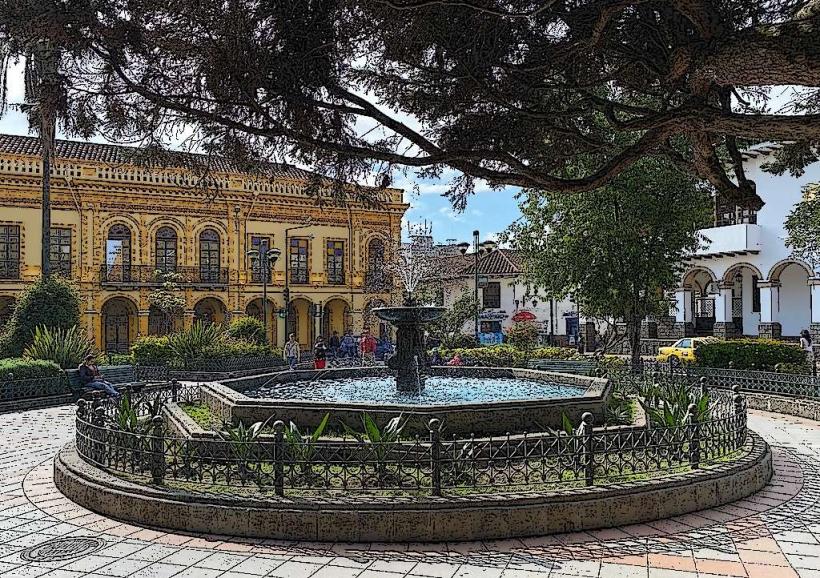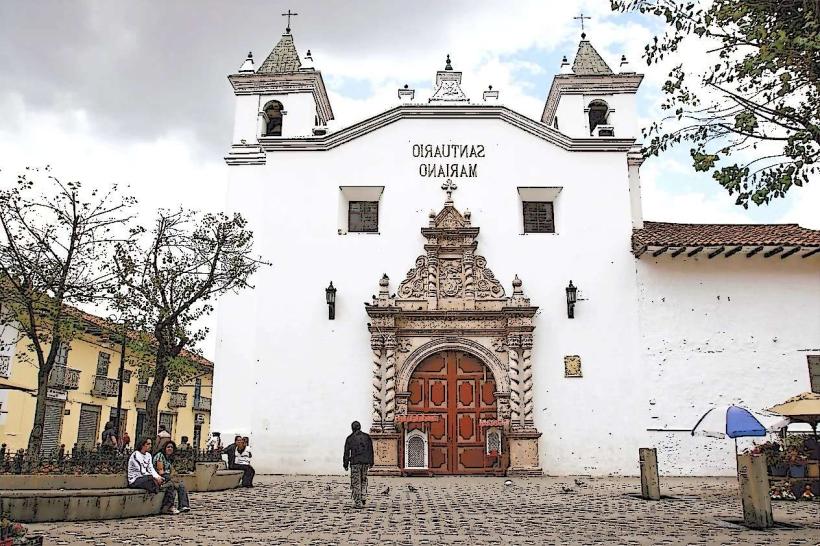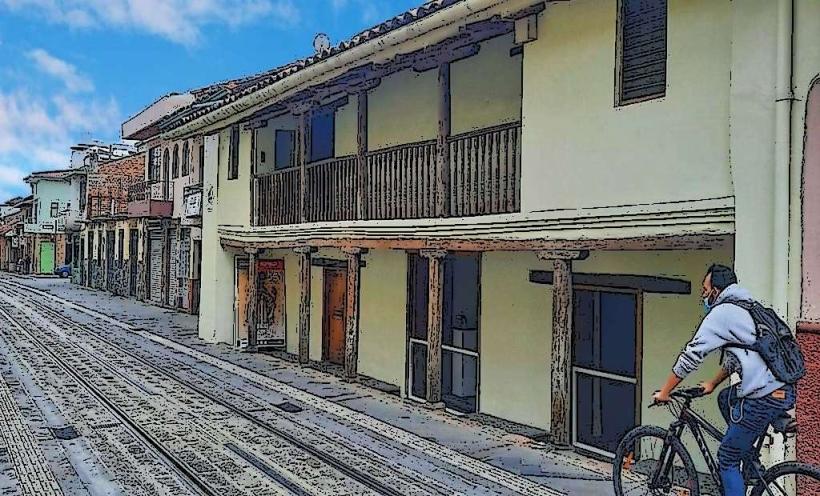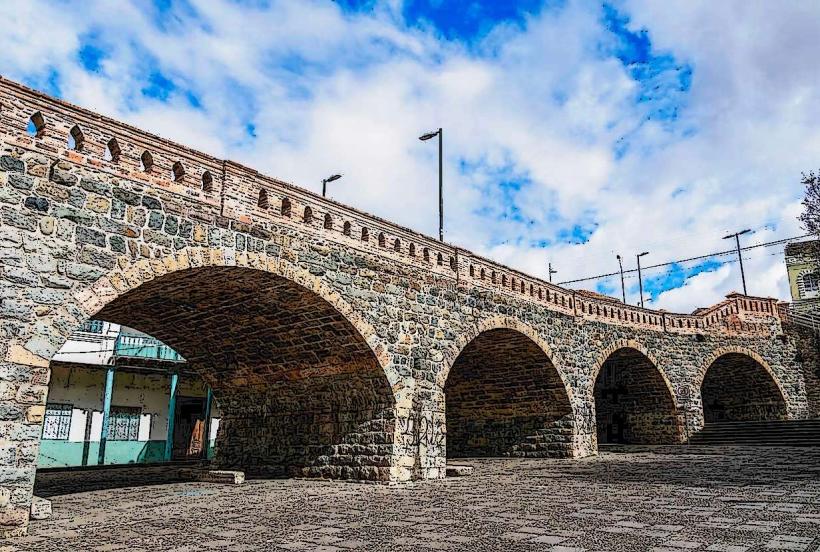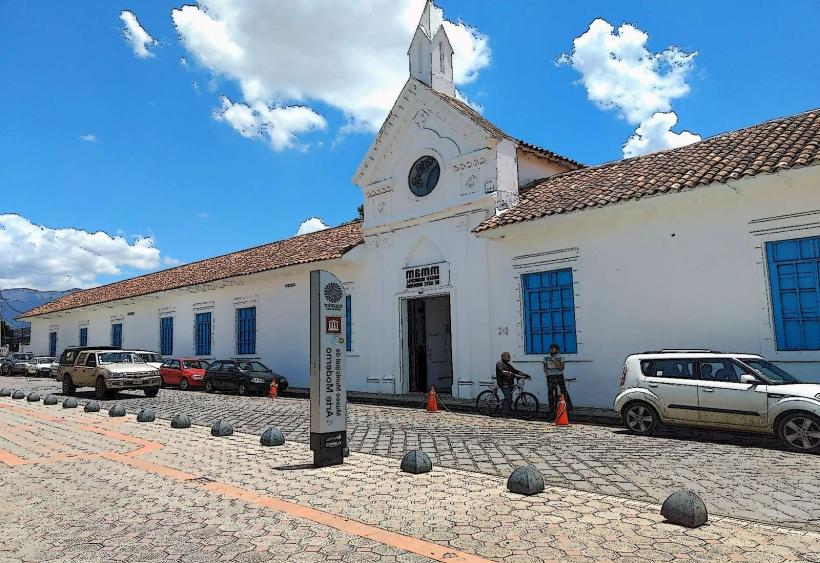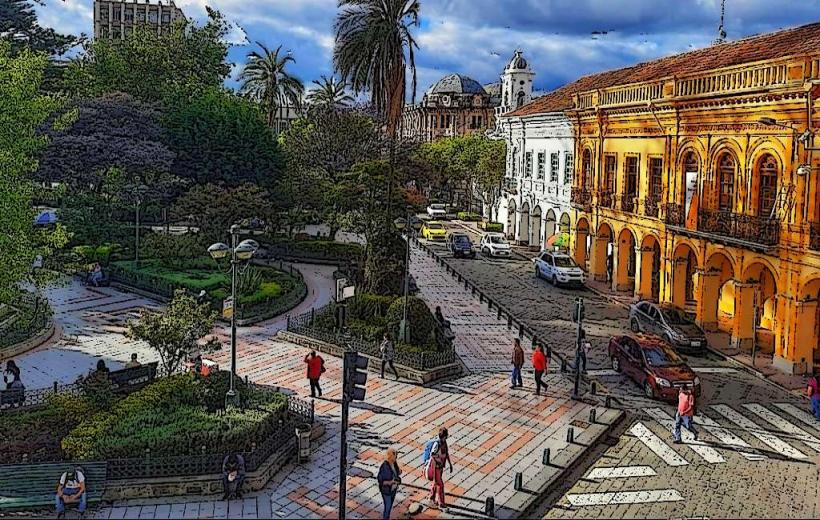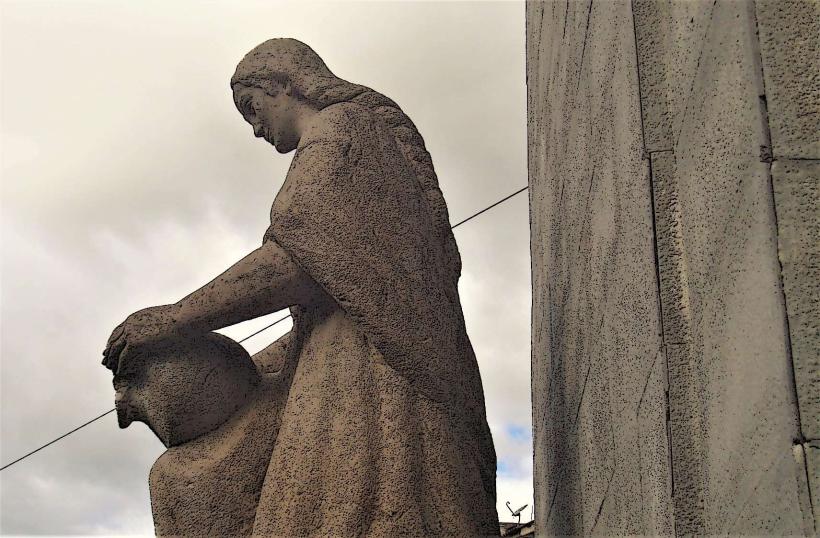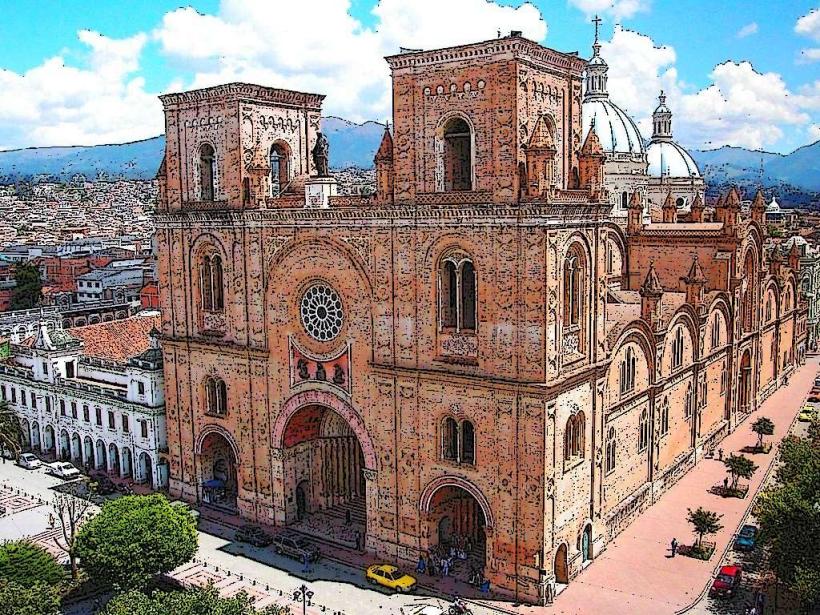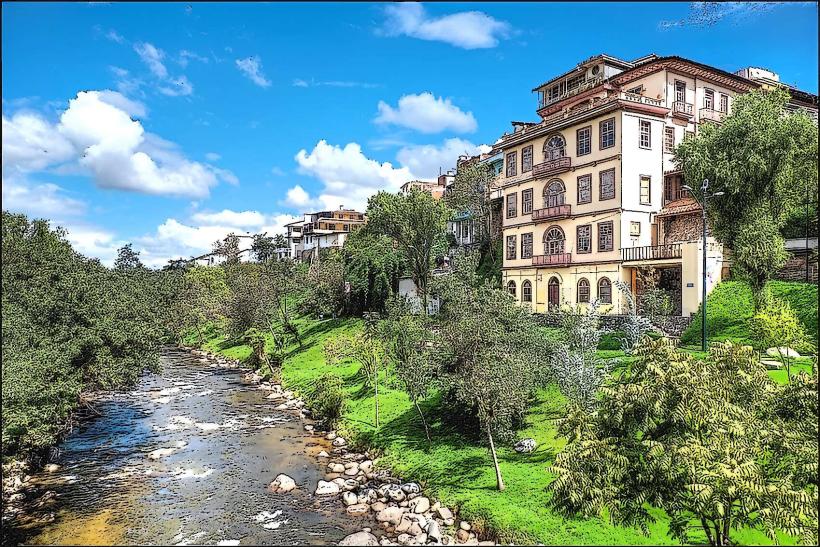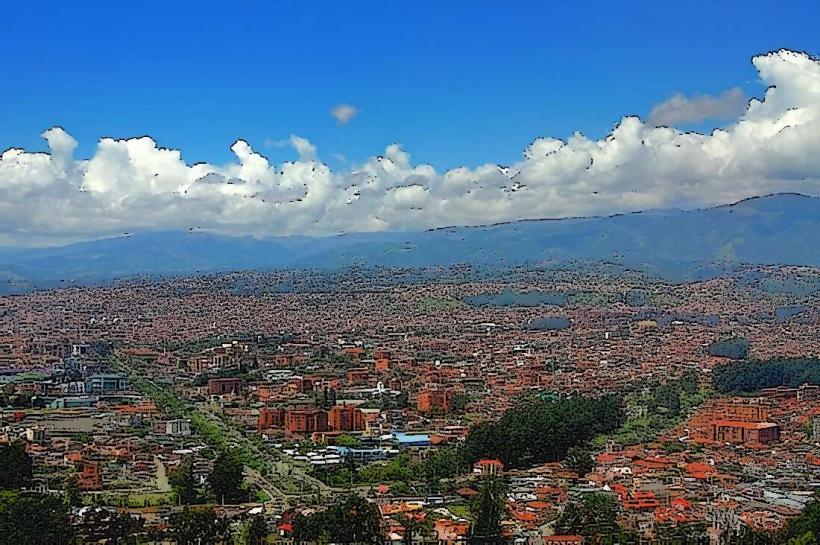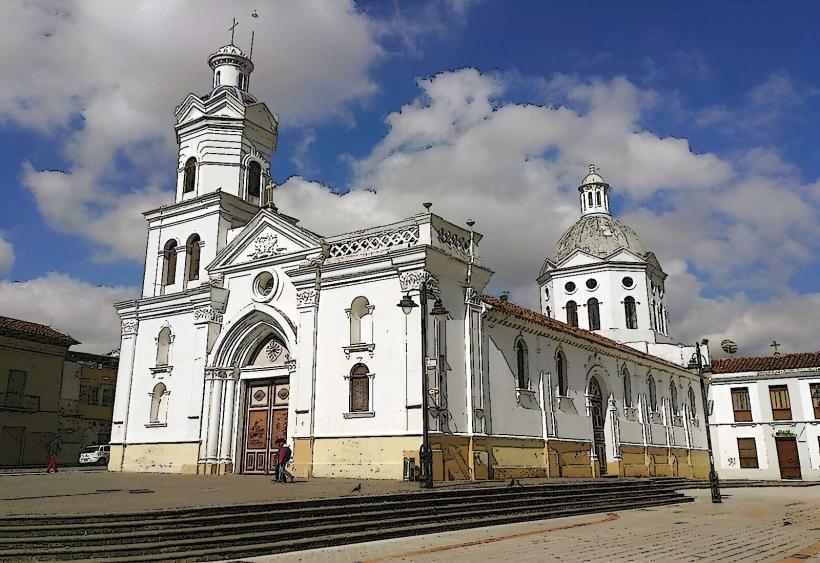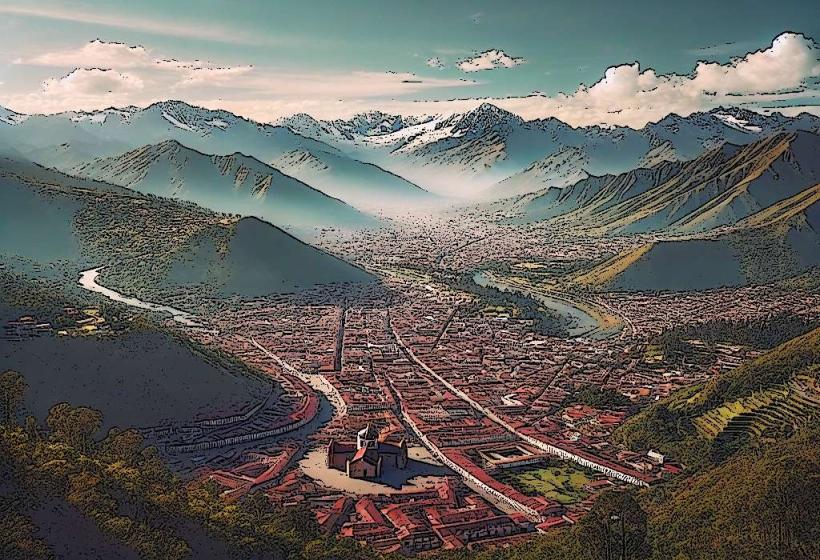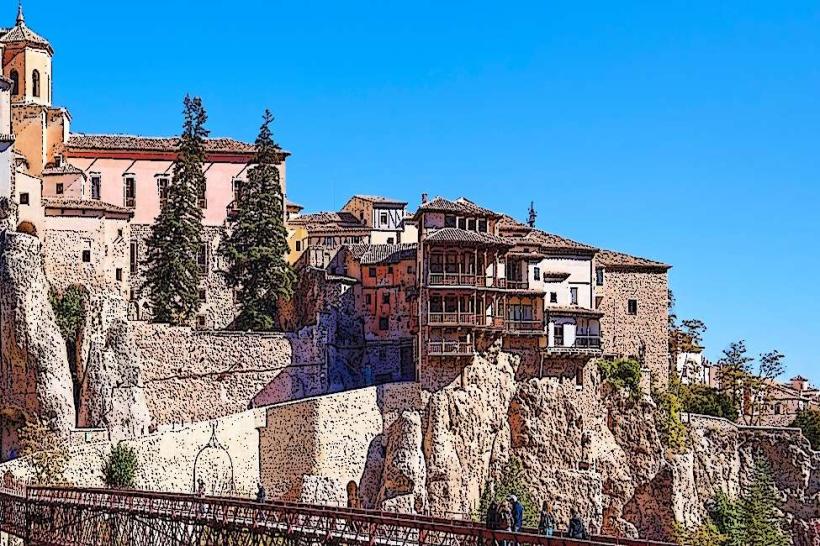Information
Landmark: Museo del Banco Central de CuencaCity: Cuenca
Country: Ecuador
Continent: South America
Museo del Banco Central de Cuenca, Cuenca, Ecuador, South America
Museo del Banco Central de Cuenca (Central Bank Museum of Cuenca) is one of the most significant cultural institutions in Cuenca, Ecuador. Located in the historic center of the city, this museum is housed in a former bank building and offers a comprehensive look into Ecuador's cultural history, archaeology, and art.
History and Location
The Museo del Banco Central is located in a beautiful colonial-era building that was once the headquarters of the Central Bank of Ecuador in Cuenca. This site has been carefully preserved to showcase the architectural grandeur of the time while also housing the museum’s expansive collection. The museum opened in the 1990s and quickly became one of the most important cultural centers in the city.
It is situated in Plaza de las Flores, near the city’s central square, Parque Calderón, making it easily accessible to both locals and tourists. The building itself, with its neoclassical design, complements the historical and artistic treasures inside.
Collections and Exhibits
The Museo del Banco Central is known for its extensive and diverse collection that spans several centuries, reflecting the cultural and artistic heritage of Ecuador and the Andes region. The museum is organized into several sections, each focusing on a different aspect of the country's history and culture:
1. Archaeological Collection
The museum's archaeological section is one of its most impressive features. It houses a wide range of artifacts from pre-Columbian civilizations that once inhabited the region, such as the Cañari, Inca, and Manta cultures. These artifacts provide valuable insights into the ancient peoples of Ecuador and their way of life.
- Pre-Columbian Artifacts: The collection includes pottery, textiles, stone tools, and ceremonial objects, showcasing the artistic and functional elements of indigenous cultures.
- Mummies and Burial Items: Some of the most notable pieces are mummified remains and funerary items that provide insight into the burial practices of ancient Ecuadorian societies.
- Inca Influence: The museum also displays objects that reflect the Inca Empire's influence on the region, particularly in areas of art and religion.
2. Ethnographic Collection
This section of the museum focuses on the diverse ethnographic and cultural history of Ecuador, highlighting the rich traditions of the country's different indigenous groups, as well as the colonial and post-colonial periods. Visitors can explore how Ecuador’s various ethnic groups have shaped the country’s culture over time.
- Traditional Costumes: Colorful textiles and traditional garments from different indigenous communities are on display, showcasing the diversity of Ecuador’s cultural landscape.
- Tools and Instruments: The collection includes examples of everyday tools, weapons, and musical instruments, providing a window into the daily lives of the country’s early inhabitants.
3. Art Collection
The museum’s art collection includes a variety of paintings, sculptures, and crafts that span centuries. The collection covers everything from colonial-era art to modern works by prominent Ecuadorian artists. It represents the evolution of art in Ecuador, including religious artwork, landscapes, and portraits.
- Colonial Art: The museum has several pieces of religious art from the colonial period, including oil paintings of saints and religious figures that were created for churches and monasteries in the region.
- Modern Art: It also features works by contemporary Ecuadorian artists, reflecting the artistic movements of the 20th and 21st centuries.
4. Numismatic Collection
Another important aspect of the museum is its numismatic collection, which includes a wide range of coins and banknotes used throughout Ecuador’s history. This collection traces the development of the country's monetary system from its early days to the present.
- Coins from Different Eras: The collection includes early coins from the Spanish colonial period, as well as the Republican era and modern Ecuadorian currency.
- Banknotes: The museum also displays historic banknotes, showcasing how Ecuador’s money has evolved over the years.
5. Temporary Exhibitions
The museum frequently hosts temporary exhibitions, which can include a wide range of subjects such as photography, contemporary art, historical topics, and more. These exhibitions offer a dynamic and evolving experience for visitors, keeping the museum fresh and engaging for repeat visits.
Architecture and Ambience
The architecture of the Museo del Banco Central is itself a work of art, with its grand neoclassical façade and expansive interior that reflects the elegance and prestige of the former banking institution. The building features large courtyards, high ceilings, and ornate columns, which create an inviting atmosphere for visitors to explore the exhibits. The museum also has well-maintained gardens and outdoor spaces, adding to the peaceful, reflective ambiance.
Educational and Cultural Role
As an important cultural institution, the Museo del Banco Central plays a vital role in educating the public about Ecuador’s cultural heritage, both through its permanent collections and temporary exhibitions. It regularly hosts workshops, lectures, and cultural events, making it a center for community engagement and learning.
For students, historians, and art enthusiasts, the museum offers a chance to delve deeply into the history and art of Ecuador and the Andean region. It is a hub for the exploration of Ecuadorian culture and a valuable resource for anyone seeking to understand the nation’s past and present.
Location and Visiting Information
The Museo del Banco Central de Cuenca is located at Calle Larga, near Plaza de las Flores in Cuenca's historic district. It is easy to reach on foot from major attractions like Parque Calderón and Las Casas Colgadas.
- Opening Hours: The museum is typically open Tuesday to Sunday, with closed Mondays. It’s advisable to check the opening hours in advance as they may vary for special events or exhibitions.
- Admission: Admission fees are usually very affordable, with discounted rates for students and locals.
Conclusion
The Museo del Banco Central de Cuenca is a must-visit for anyone interested in exploring Ecuador’s rich history, art, and culture. With its diverse collections that span centuries of Ecuadorian life, it provides an in-depth look at the nation's pre-Columbian roots, colonial history, and modern art. Whether you’re interested in archaeology, art, or the historical development of Ecuador, the museum offers an enriching experience in one of the most charming cities in the country.


